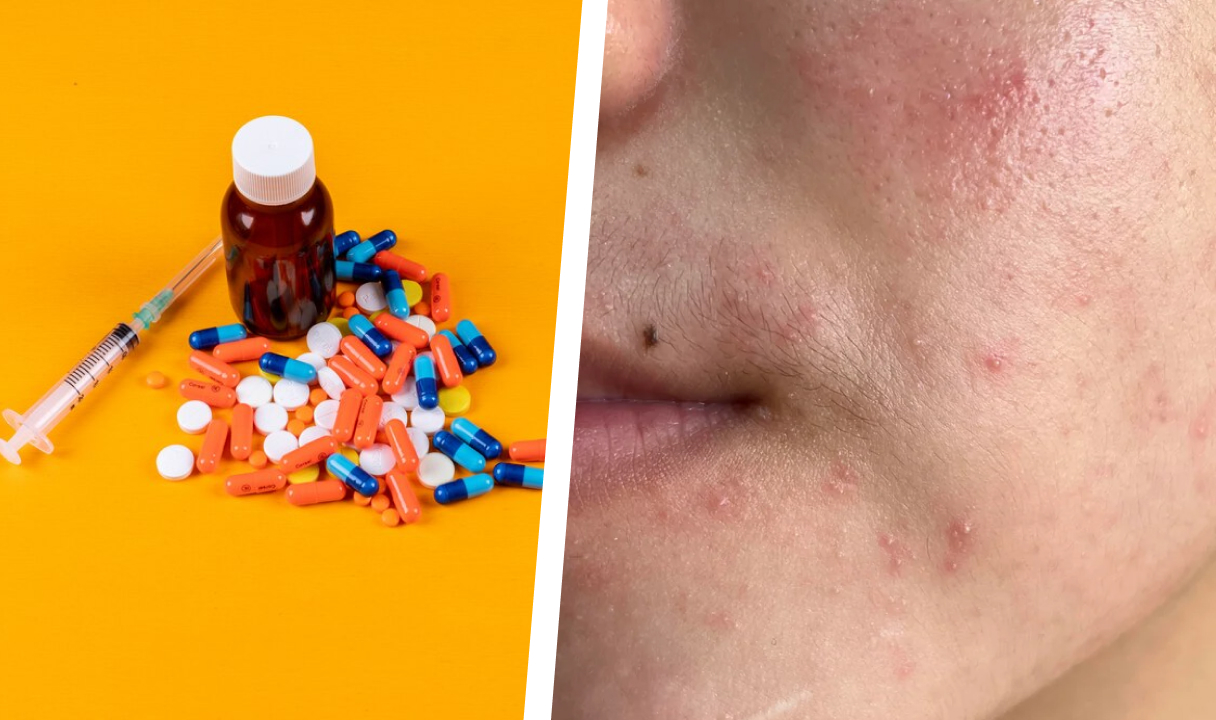Navigating the world of medication can feel like walking a tightrope, especially when it comes to combining different treatments. Whether you’re managing severe acne with Accutane or tackling nasal issues with Fluticasone, understanding how these medications interact is crucial.
This blog post dives into the essentials of these two popular medications, exploring their uses, potential interactions, and how you can safely manage your treatment plan.
Whether you’re a seasoned Accutane user or new to the world of Fluticasone, read on to learn more about how these medications can work together without compromising your health.
What is Accutane?
Accutane, known generically as isotretinoin, is a powerful medication primarily used to treat severe acne that hasn’t responded to other treatments. It works by shrinking the oil glands in the skin, reducing oil production, and helping to renew the skin more quickly. While incredibly effective, it comes with a host of potential side effects that need careful monitoring.
Common side effects of Accutane include dry skin, lips, and eyes, increased sensitivity to the sun, and changes in mood. Because of its potent effects and potential risks, Accutane is only available through a special program called iPLEDGE, designed to prevent pregnancy during treatment due to the high risk of birth defects.
This program involves regular pregnancy tests and strict adherence to contraceptive methods for those who can become pregnant.
The iPLEDGE program underscores the importance of monitoring while on Accutane. Regular check-ins with your healthcare provider are essential to ensure the medication is working effectively and to manage any side effects that arise. This level of oversight makes it clear that Accutane is not a casual medication but a serious treatment for persistent skin issues.
What is Fluticasone?
Fluticasone, on the other hand, is a corticosteroid commonly used to treat nasal conditions such as allergies and sinusitis. Available in forms like nasal sprays (Flonase, for example), it works by reducing inflammation in the nasal passages, making it easier to breathe and alleviating symptoms of congestion and sneezing.
The mechanism of action for Fluticasone involves blocking certain natural substances in the body that cause inflammation. It’s generally well-tolerated, but like any medication, it can have side effects. These may include nasal dryness or irritation, nosebleeds, and, less commonly, a sore throat or headache.
Fluticasone is often favored for its targeted approach. Unlike oral medications that affect the entire body, nasal sprays like Fluticasone deliver medication directly to the site of action, minimizing systemic side effects. This makes it a convenient and effective option for those dealing with nasal allergies.
Can You Take Fluticasone with Accutane?
Now, onto the big question: can you take Fluticasone with Accutane? According to medical sources, it’s generally safe to take these two medications together. There’s no significant interaction between Fluticasone and Accutane, meaning they can often be used concurrently without issue.
However, the keyword here is “generally.” Individual responses to medication can vary, and so it’s crucial to consult with your healthcare provider before starting any new medication. They can assess your specific situation, considering factors like your overall health, other medications you’re taking, and any underlying conditions.
Monitoring for side effects is also important. Both Fluticasone and Accutane have their own set of potential side effects, and while they don’t typically interact, it’s always good to stay vigilant. If you experience any new or worsening symptoms, be sure to inform your doctor. Adhering to prescribed dosages and following your healthcare provider’s instructions can help ensure a safe and effective treatment plan.
Potential Risks and Considerations
While taking Fluticasone and Accutane together is typically safe, there are still some risks and considerations to keep in mind. For one, both medications can cause dryness—Accutane is notorious for drying out the skin, while Fluticasone can dry out the nasal passages. This could potentially exacerbate dryness in sensitive individuals.
Another consideration is the cumulative effect of taking multiple medications. While there’s no direct interaction between Fluticasone and Accutane, your body still has to process both drugs. This can put added stress on your liver and other organs, especially if you are on additional medications.
Knowing when to seek medical guidance is crucial. If you experience severe side effects like intense dryness, nosebleeds, or any signs of infection, contact your healthcare provider. They may need to adjust your dosage or suggest alternative treatments to address these issues.
Alternatives and Complementary Treatments
For those concerned about using both Fluticasone and Accutane together, there are alternative treatments and complementary options to consider. For acne, alternatives to Accutane include topical treatments, antibiotics, and hormonal therapies. These may not be as potent as Accutane, but they can offer relief for milder cases.
In terms of nasal conditions, non-steroidal sprays, saline rinses, or antihistamines can be effective alternatives to Fluticasone. These treatments help alleviate symptoms without the use of corticosteroids, which might be appealing to some users.
Lifestyle modifications can also support treatment goals. For acne, maintaining a healthy diet, staying hydrated, and keeping stress in check are all beneficial. For nasal allergies, reducing exposure to allergens, using air purifiers, and maintaining good indoor air quality can make a significant difference.
Conclusion
In summary, while it’s generally safe to take Fluticasone with Accutane, it’s essential to consult with your healthcare provider before starting or adjusting your medication regimen. Being informed and proactive about your health care decisions can make a significant difference in treatment outcomes.
Navigating multiple medications can be complex, but with the right guidance, you can manage your treatment effectively. If you’re considering or currently taking Fluticasone and Accutane, stay informed and communicate openly with your healthcare provider. They are your best resource for ensuring a safe and successful treatment plan.
FAQs
Can I take nasal spray while on Accutane?
Yes, you can generally take nasal sprays, including Fluticasone, while on Accutane. However, consult your healthcare provider for personalized advice.
What medications cannot be taken with Accutane?
Some common drugs that interact with Accutane include tetracycline antibiotics, vitamin A supplements, and certain acne medications. Always review your medication list with your healthcare provider to avoid interactions.
What drugs interact with Fluticasone furoate?
Fluticasone furoate can interact with certain antifungal and antiviral medications. These interactions can increase the risk of side effects, so it’s important to discuss all medications you’re taking with your healthcare provider.
Is it OK to take allergy medicine with Accutane?
Most allergy medications, including antihistamines, can be taken with Accutane. However, it’s best to confirm with your healthcare provider to ensure safety and compatibility.


















